Publications
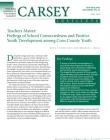
October 11, 2010
Students who feel positively about their education, have a sense of belonging in school, and maintain good relationships with students and staff generally feel connected to their schools. In fact, 63 percent of Coös youth report feeling this way.
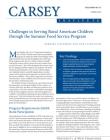
April 1, 2010
When the school year ends, many low-income children rely on the USDA's Summer Food Service Program (SFSP) to supplement their diet. But less than one-third of SFSP sites are located in rural communities and rural children participate at a lower rate than those in more urban areas.
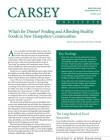
April 1, 2010
Access to healthy food is becoming increasingly difficult for some households in the Granite State, as grocery stores relocate or consolidate, leaving some residents to depend on convenience stores for basic groceries. This brief looks at recent data on food deserts in New Hampshire.
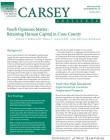
April 1, 2010
As Coös County youth age, their attachment to their communities may deteriorate. This brief presents new data from the Coös Youth Study. This research indicates efforts to keep young people in Coös may benefit from efforts to show students that their views matter to adults in their communities.
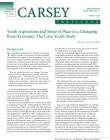
January 1, 2009
Youth in rural Coös County have surprisingly strong ties to their communities, finds a new report from the Carsey Institute. The brief is the first to report on a ten-year panel study of students who began seventh and eleventh grades in 2007 in Coös, New Hampshire's northernmost and most rural county.
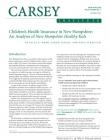
March 20, 2007
New Hampshire has been successful in achieving one of the lowest uninsurance rates for children in the country - 6 percent in 2005 (U.S. Census Bureau). The extent to which New Hampshire Healthy Kids has contributed to the state's success in achieving this low rate is the focus of this brief.
